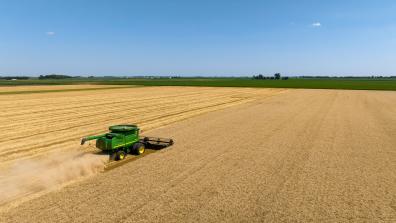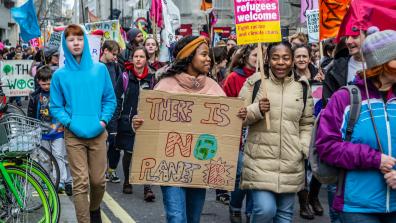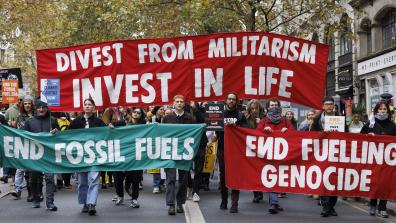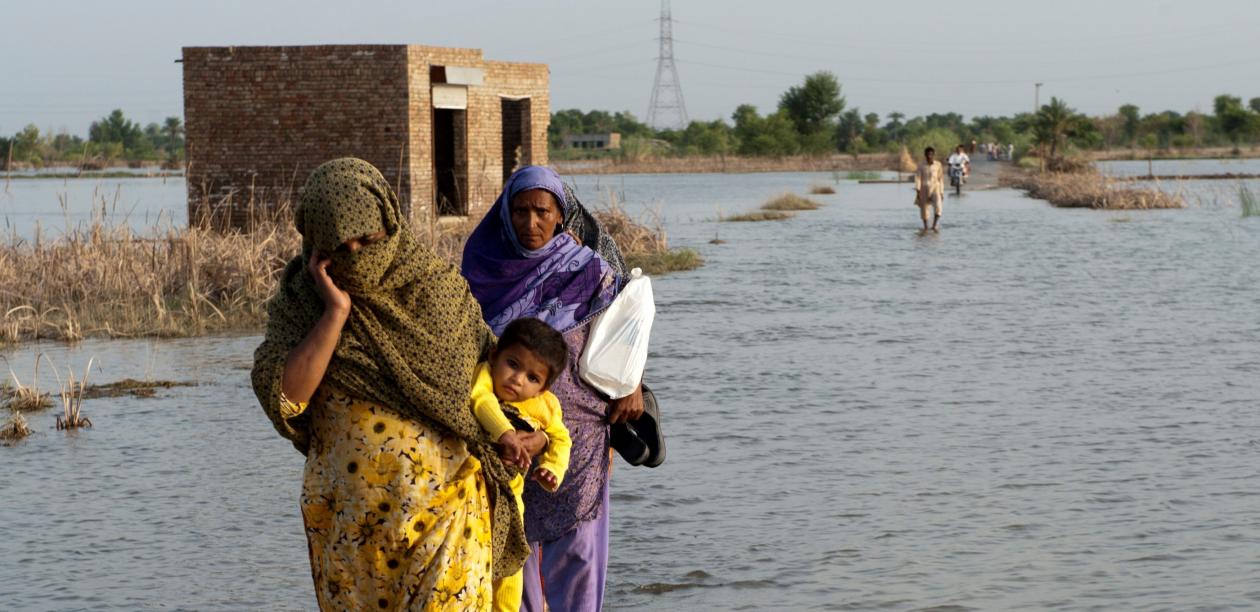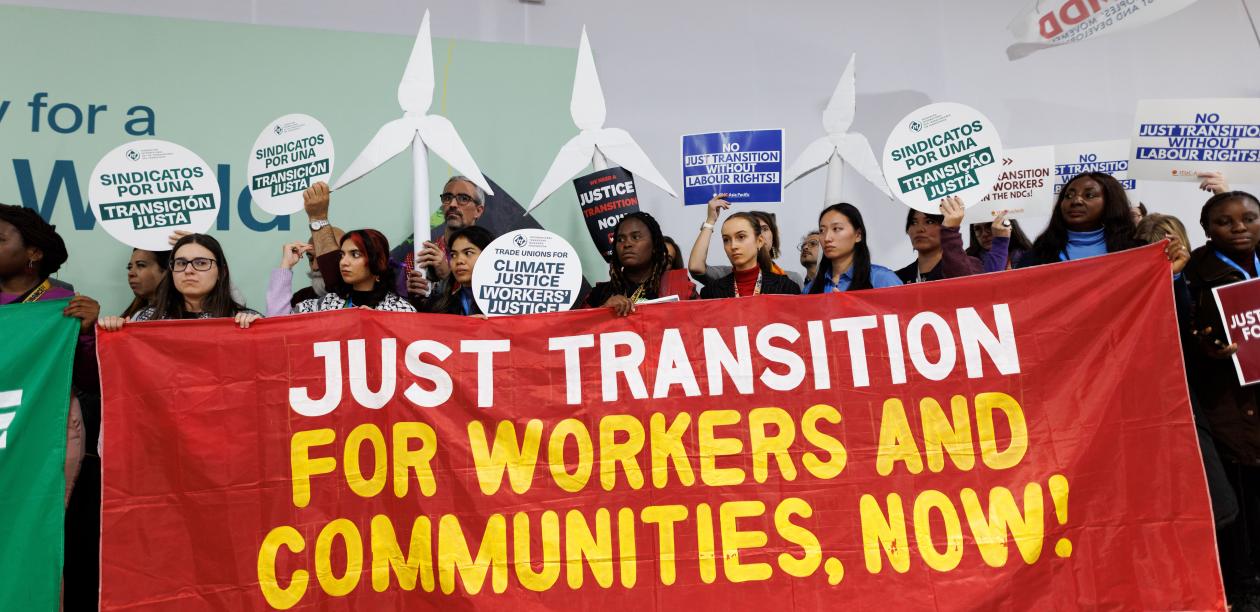Healing the Fracture: A Global Green New Deal for All Beings
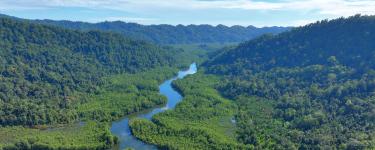
The destruction of the Earth’s ecosystems is deeply connected to the crises of climate breakdown, inequality and injustice. These are not isolated problems – they are symptoms of humanity’s broken relationships with the planet, with each other, and within ourselves. In turn, this ecological violence mirrors a spiritual crisis for many – a loss of belonging, isolation, and the erasure of our place within the intricate web of life.
The Roots of Ecological Breakdown
The global political-economic system is built on the extraction, exploitation, and domination of people and planet – racialised capitalism – rooted in a modernist worldview that separates humans from nature and privileges control over reciprocity. This system is based on severing relationships — with land, labour, and life itself — to extract profit and concentrate power in the hands of the few.
Nature is treated not as a living, interdependent network of beings, but as resources to be commodified and exploited. Industries such as construction, agriculture and food production heavily depend on nature, but in the relentless drive for profit, leave ecological destruction in their wake.
More energy, food and materials are being produced than ever before, yet vast inequality persists. Across the world, over 600 million people live without access to electricity, hunger is rising, and almost 700 million people live in extreme poverty on less than $2.15 (£1.62) per day.
Colonialism and capitalism share the same logic: a worldview that seeks to subjugate and homogenise diverse forms of life to fit narrow visions of power and profit. This drive for control is what Indigenous Brazilian scholar Antonio Bispo dos Santos calls ‘cosmophobia’ – a colonial and capitalist fear of ecological diversity and plurality.
Exceeding Planetary Boundaries
Relentless exploitation of the Earth’s resources has pushed us beyond ‘planetary boundaries’ – thresholds beyond which the Earth cannot self-regulate, putting the planet’s stability and ability to support life at risk. As human activities alter ecosystems on an unprecedented scale, the delicate balance that sustains life is increasingly threatened.
Scientists have identified vivid markers of this rupture. Radioactive plutonium from nuclear weapons tests in the 1950s, coupled with the global surge in burning fossil fuels, has marked sediment at the bottom of Lake Crawford, Canada – revealing the point at which human activities began fundamentally altering the Earth's ecology and climate system. These irreversible changes mark a new geological age – the Anthropocene, where humans are the dominant influence on climate and the environment.
Indigenous Mapuche women, from Chile and Argentina, describe this epoch as ‘terracide’ – the deliberate destruction not only of ecosystems but of the relationships and networks that sustain life, caused by a political-economic system that seeks to dominate rather than coexist. Brazilian activist Bispo dos Santos identifies it as ‘cosmophobic violence’ – a colonial attempt to dominate and homogenise Earth’s diverse life systems.
Seeing Land as Kin
Ecological and Indigenous knowledge systems recognise humanity as one part of a complex, interdependent web of life. Yet, capitalist systems sever these bonds, turning vibrant ecosystems into resources for profit.
Indigenous communities whose practices have safeguarded biodiversity for generations offer vital lessons, in the face of relentless threats from extractive industries.
Land continues to be a living library, allowing us not just to survive, but to thrive in connection with ancestors, human and non-human kin. Land provides identity and belonging – it is sacred, cannot be owned, and can only be shared.
Nearly half a billion Indigenous people globally protect sacred mountains, forests, lakes, and rivers. Their agroecological conservation practices – that centre people and planet over profit – and agroecological approach to food production are living responses to ecological breakdown.
For Indigenous Brazilian philosopher Ailton Krenak, the concept of ‘florestania’ or ‘ecological citizenship’ underscores kinship with all life, emphasizing individuals' responsibility for the wellbeing of the environment. Without integrating these perspectives, climate justice efforts will remain incomplete and disconnected from those who have long defended ecosystems.
Alternative Pathways: Degrowth
To rebuild our relationship with the Earth, we must reorganise our economies. As anthropologist Jason Hickel argues, genuine solutions require confronting overconsumption and the structures of extraction and growth driving it.
‘Degrowth’ offers a transformative alternative: scaling down ecologically harmful industries and prioritising wellbeing over profit, redirecting resources towards social needs such as health, education, food sovereignty, and cultural renewal.
Degrowth challenges the flawed narrative that economic growth equates to progress, instead measuring prosperity by the health of our relationships with the Earth and each other. Degrowth resonates with Indigenous frameworks of reciprocity and stewardship, cultivating systems of care and ecological resilience.
Ecological Justice and the Rights of Nature
Environmental justice academic and activist Eduardo Gudynas argues we must move beyond seeing nature as an exploitable resource, to acknowledging its intrinsic right to exist, thrive, and regenerate.
The ‘Rights of Nature’ movement offers a powerful framework for confronting ecological harm. Through initiatives including the International Tribunal on the Rights of Nature, communities are challenging destructive practices and holding governments and corporations accountable.
Recognising nature’s rights is part of writer and philosopher Ailton Krenak’s invitation to ecological citizenship for restoring humanity’s relationship with nature and ensuring its protection against exploitation – challenging the commodification of the natural world.
Some have raised concerns that rights-based approaches can risk replicating Western legal traditions rooted in individualism. But the Rights of Nature movement offers a different vision — one grounded in relational responsibilities to the Earth, other beings, and future generations.
A Radical Global Green New Deal
The transformation needed to restore planetary balance demands an ambitious, integrated vision: a radical Global Green New Deal that goes beyond policy fixes – to a commitment to healing relationships, confronting exploitation, and restoring balance.
This vision is crucial to build alternatives to the current geopolitical climate that is shaped by fear, division and authoritarianism. Powerful politicians, the super-wealthy, corporate and media barons deploy rhetoric designed to fragment movements, isolate communities and deepen our disconnection from the Earth.
War on Want’s radical vision for a Global Green New Deal draws on Indigenous wisdom, degrowth strategies, the Rights of Nature, and practices of ‘bridging’ (intentional relationship-building) to create a future rooted in collective responsibility. It demands we confront urgent questions:
- Will our interventions keep global heating below 1.5°C?
- Will they enable humanity to thrive within planetary boundaries?
- Will they undo historical injustice and inequality?
- Will they centre ecosystems and biodiversity as essential to all life?
At its heart, this transformation also demands deep cultural change – one that reawakens our sense of interdependence, reclaims ancestral knowledge, and invites us to imagine new ways of being, beyond the confines of modernity and extraction.
Civil Rights scholar John A. Powell describes ‘bridging’ as essential for creating solidarity across differences. Bridging counters the isolation and division that authoritarian systems thrive on, reinforcing our shared humanity and connection.
A radical Global Green New Deal can be that bridge, creating space for imaginative resistance, building connections across movements and geographies to achieve the systemic transformation that is so urgently needed.
